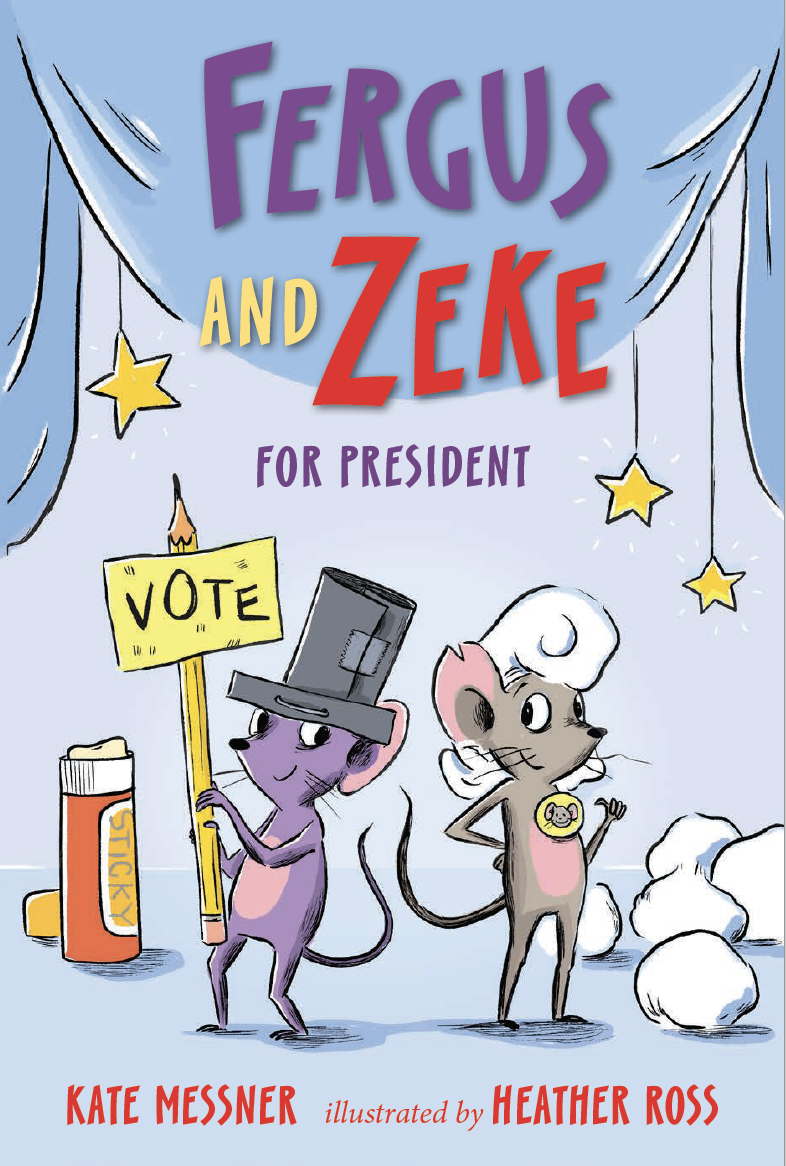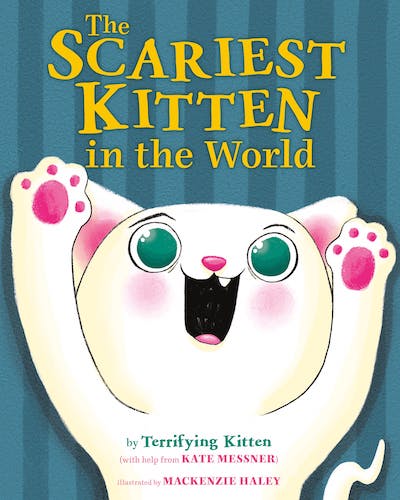Ready for your final Thursday Quick-Write of the summer? Our guest author today is the brilliant Alicia Williams, whose debut novel comes out in the fall. Alicia is a graduate of Hamline University’s MFAC program. Her debut middle grade novel will be GENESIS RISING, with Atheneum/S&S. She started her storytelling as a folk storyteller and captivates audiences young and old with the Breh Rabbit and Breh Fox tales. She also writes and performs one-woman historical plays, featuring the likes of Sojourner Truth, Margaret Garner (slave that Toni Morrison based BELOVED on), Mamie Till (Emmit Till’s mother), to name a few. Alicia is also a Master Teaching Artist, combining her love of storytelling and acting, to teach writing based on an arts-integration pedagogy.






Thanks for expanding our online conversation to such important considerations. Just saw a production of Shakespeare’s Troilus and Cressida that made it clear that storyline and words can be universal, regardless of our assumptions about race, gender, etc. We can also make sure our libraries reglect diversity. Yet writing specifics outside our own experience can be more problematic. So appreciate this exploration.
Thank you for continuing this important conversation. My yearly classroom goal is to find at least one book for each of my students. Thank God it’s getting easier as more voices are getting heard.
Maureen, what a great goal. Thanks for listening to and sharing all the stories.
Thank you for your writing prompt for today! One of the stories I have been working on this summer is about a First Nations village in British Columbia Canada where the parents resisted the abuse of the Residential Schools. I teach about truth and reconciliation and have been looking for stories of resistance to share with students. I was very fortunate to find some letters and reports written at that time which were really helpful! I feel unsure about pursuing this project because culturally this is not my story to tell, so your post and resource links have given me more to think about!
My quick write is about a Haisla First Nations girl returning to her boarding school after a Saturday at home.
Nellie ran up the steps of the home, rushing to get back in time for prayers. She was late again. She took a moment to straighten her dress and pull her shawl over her head evenly before she opened the door. She rubbed at a dirty mark on her skirt. She hadn’t noticed it at home.
“Nellie,’ Matron admonished her has she came through the door. “You are late.”
The teachers looked at Nellie, her dress dirty and wrinkled, her shoes covered in mud. Miss Clark’s breath huffed out of her mouth like an Orca blowhole as she came forward.
“You girls are always tracking dirt in. Honestly, what have your mother’s taught you?” She said, blocking her from walking one more step into the room. “You will have to change your dress immediately. Remove your shoes now and leave them here. Come back after you have changed and brush every bit of dirt from the soles.”
Nellie looked down at the floor, away from the angry eyes of Matron and Miss Clark. The other girls looked down as well.
“We will not have one speck of dirt in this school!” The matron’s shrill voice rang through the room. “You will clean up any that you track in and we will scrub your soiled dresses until they are as white as snow.”
Diana, I thought today’s prompt was good for me too. I like how you put it–culturally Nellie’s story is not yours to tell. That’s true, but there is so much more to tell from the Matron and Miss Clark’s perspectives. Maybe you can find a Haisla partner to read the beta version of your story, as “sensitivity reader.”
I don’t really know about the cultural sensitivity, so I won’t comment on that. You’ve described well the matron’s shrill voice. It makes the hairs stand up on my neck, and makes me dislike her.
Diana,
Like Denise, today’s prompt and the notion of who’s story it is to tell was good for my brain today. And like Denise, I am not sure about the cultural sensitivity. However, I once taught in a school with mostly Caribbean students and mostly white teachers. I remember one teacher speaking to a student in almost the exact same way you described and how it made my heart sink. Your description did the same for me, it made my heart sink again.
Good luck in your writing.
The teacher in my story is an immigrant to the US from Goa, India. She came with her parents 25 years ago and they lived in Queens, NY, most of those years. Recently Rina moved to Madison, Wisconsin, and her parents came to visit her in the summer. In this scene, they are in an outdoor fish market.
Amma grabbed the fish by the tail and lifted it a bit off the ice, smelling in deeply. She laid it down and looked directly into its eyes. The moss colored, speckled walleye felt firm and fresh. Amma adjusted her scarf, making sure it covered her black waves.
“Are you going to buy that?” the man in the white tee shirt asked.
“She’s just used to checking to make sure it’s fresh,” said Rina.
“It is,” said the fisherman, rolling his eyes.
“When you catch it?” Amma wanted confirmation. She glared into the mouth, noticing the razor sharp teeth on the fish.
“This morning, of course. The lake’s right down the road. You aren’t in Afghanistan anymore, lady.”
“She knows where she is, but she’s new to buying fish in Wisconsin,” said Rina.
“I’ve never been to Afghanistan,” Amma whispered to Rina.
My, God, why does she wear that head scarf when she’s out? thought Rina. Most Catholics don’t even cover their heads in church any longer, even in Goa. She seems to wear it more and more the older she gets.
“I’ll take your fish, young man. And by the way, I’m American, with scarf or without,” said Amma, with unusual confidence.
Good morning Denise! Wow, a fish market in Madison is certainly an intriguing place for conflict. One part that was interesting to me was Rina being in a position of power here, almost the parent, for her own mother. I have found that in immigrant families I work with, the children sometimes take on that role, or attempt to take on that role. It was interesting to see it play out in a similar way here. The part about wearing the head scarf also resonated with a story I heard recently from a woman who started wearing her own head scarf the older she got. I wonder if Amma, with her unusual confidence should have commented to the man that she had never been to Afghanistan. Just a little hint at confidence that she will show in just a moment.
Thanks for sharing!
Thank you, Megan, for the encouragement and advice.
Well done, Denise. I loved reading it.
First, the characters are so believable – “This morning, of course. The lake’s right down the road. You aren’t in Afghanistan anymore, lady.” Wow! Does that sound like an American or what!:) My other favorite line is, “I’ll take your fish, young man. And by the way, I’m American, with scarf or without,” said Amma, with unusual confidence. I really like the “unusual confidence” part. Earlier in the story, she did not seem very confident, but her anger/annoyance made her more confident.
Second, the outdoor fish market is setting is perfect. A fish market isn’t as common as a supermarket. There is a specific culture at a market that is different than a supermarket or neighborhood market. The characters lend themselves well to the unusual setting.
Thank you for your words.
Happy writing!
Ok, so this was tough for me. As a white woman engaging in industries saturated by white women I am often conflicted about my role in both writing and teaching. The teachers in our school are currently reading “For White Folks Who Teach in the Hood…and the Rest of Y’all Too” by Christopher Emdin. A lot of what he says parallels the article you linked to, Kate, on Buzzfeed. My story is one of small town living, imbedded racism, and poverty. The characters in my story reflect the true stories of many people I knew. Owen is a bully in Alice’s life. He repeatedly picks on her for dressing poor and for being not so girly. When I developed his character, I knew he was gay. I knew him in school. His story is not told but I used the prompt today to help me get to know him a little better. Not sure if I will use this in my WIP, a MG novel, but it forced me to think about him in a way I hadn’t before. Also, this is scary! When I wrote about the character with autism I was unsure if what I was reading would be ok. Thank you, Kate, for the article about sensitivity readers. I will be sure to have friends read my work who can offer this type of perspective.
Owen woke up and stretched, already hearing the sound of his stepdad in the kitchen. He tried to decide how long he could stay in bed to avoid having to spend time near Jim and how long would be too long – which would result in some sort of confrontation for being lazy. He decided it would better to get it over with rather than wait it out. A trailer is too small a place to completely avoid someone else.
He walked into the living room, flanked with the heads of his stepdad’s latest trophies. Owen’s stepdad was a hunter, just one of the many things they didn’t have in common. When Owen’s parents got divorced, it was only a couple of months before his mom moved them in with Jim. To put it bluntly, he was an asshole. And he didn’t like Owen. When he found out Owen wasn’t interested in hunting, he never let it go. What would he think if he found the stack of fliers for auditions tucked under Owen’s mattress?
Owen hated feeling like he was suffocating in his own home. TV made it look like being different was ok now. TV never talked about places like Fiddler’s Green. They didn’t tell you what to do when your mom was afraid of your stepdad. And when your stepdad seemed to like hunting for reasons that made your stomach flip in your own home. On TV you could just stand up for yourself, be brave, times would be tough but you would make it through. Maybe that’s why I want to be in those musicals, Owen thought. Then at least I could pretend. But then everyone would know anyway.
I can relate to your concern about being a white woman in a field of white women. I always hoped for men and people of color teachers to come into my children’s lives and my students’ too. It’s good to get many perspectives. The growth in the number of books by authors who are people of color is encouraging.
Megan, your description of Cole is so powerful. It is good to get into his world, as we have empathy right away. So often bullies are just bullying others for their own perceived weaknesses. Your story sounds like a winner.
Megan, I can also relate to your line, “As a white woman engaging in industries saturated by white women”. I am a male teacher that has worked with nine women for sixteen years. Honestly, I believe it makes me a better husband, but I get really annoyed when male friends make a comment about it (joking or not). All of us have flaws (and some bad days), but I would never turn down working with these nine women for another sixteen years. They provide me with different perspectives and make me a better teacher and person.:)
Now, for your snippet. I really enjoyed reading it. There is such conflict in your mc’s life. The poor kid is probably in the worst predicament that he could find himself in. The outdoorsy stepdad that hunts and keeps trophies will never understand Owen. Unfortunately for Owen, he has very little chance of changing his stepdad’s opinions on anything. You have created a ton of emotion (as you can tell, it made me feel extremely sad).
Thank you for sharing.
Happy writing!
The writing exercises these last few weeks provided me such great opportunities to experiment by changing my lenses and filters to initiate and reevaluate some characters from my own authorial perspective. For me, hospital ER rooms, airports, and sporting events, places you might find a diverse population, become settings that allow likely interactions between people with very different perspectives. What I’ve been able to focus on is better consideration of whose perspective I can most genuinely share as a writer.
This morning’s piece of writing may not clearly reflect that yet, but I know I’ve changed my plan and perspective to create a better story. So I’m continuing from where I left off in an earlier prompt:
With another quick glance across the track to make sure coach wasn’t already camped out with his stop watch, legs propped on the the lowest rung of the dull metal railing, Kara pushed off the wall to continue riding on the black macadam surrounding the outside of the track. Thinking about how she would no doubt be standing out like that ostrich among those jet black cattle in the field she had been riding by each morning, she took a quick glance behind her and scooted down the steep incline of the macadam.
Double track workouts, with a long ride in between, had been so intense, Kara noted that she had not even fit in her once daily walks, when she could slow down and observe the world and think about something other than racing. She had no idea what lie on the far side of the bleachers. Just then, her eyes once again caught a deflected ray of the morning sun off something underneath the bleachers.
Unlike the homestretch side bleachers that were all metal without cracks for a water bottle to fall through, Kara could see the weathered wood that didn’t seem to match the metal of the railing they must have replaced to impress the season ticket holders, who would only view these seats from a distance. Plus they would be focused on the every word of the Friday race night PA announcer’s guidance as a former Olympian, who knew how to build crowd intensity to match the race, aided by those regulars along the wall who would beat on the wall to his command.
As she back pedaled to slow her approach to the bleachers, Kara observed that the morning sun’s rays filtered through the seats of the bleachers to create a shape no bigger than last night’s crescent moon. Not far beyond, a clear silhouette of a bike hanging from rungs on the middle lower belly of the bleachers appeared. With a quick decision to dismount so she could slow down and observe, she pulled up to the metal railing of the bleacher steps.
“What are you doing here?” she heard the challenge in the voice before her eyes could adjust to less light as another silhouette took shape of a girl probably not much older than she was.
[intro of my new character and the friendship that grows between this young elite rider and the girl who lives in the row home, whose backyard abuts the velodrome. Such a better story than what I had started with between athlete and coach]
This morning I was listening to Story Corps, a story about a man who took the name, Sissy. He is heterosexual and is married to a woman who loves him very much. All of his life he has dressed in skirts and dresses. He has been threatened by family members and strangers. He is a teacher in a college and his students came to class with scarfs around themselves, to cheer him on and give him acceptance. Thank you for sharing those articles to help have insight on how to write in a perspective that I am unaccustomed to.
Thank you, Alicia! I had so much fun with this writing activity. I’ll be honest. I didn’t use any story (or character) that I have been writing about. Instead, I just wrote a story for fun (using some experiences from when I recently took my children to a Greek festival in the eastern suburb of our city; I also borrowed some from past students that I have had in class and I did some research).
Here’s my snippet:
Calista guides me past the young girls and boys dancing to a picnic table at the back of the tent. The Greek music is blaring from the two large speakers that stand in front of the stage. I swear that she is related to everyone at this festival.
She waves to a short, elderly woman that is standing in front of the door that leads into the church. It looks like she is in charge of the food. As soon as Calista gets her attention, she quickly barges through the crowd heading our way. Even though she’s still about forty feet away, she starts talking loudly to Calista.
“This is Grandma Galatas,” Calista says into my ear as the woman is nearly to our table.
Grandma Galatas keeps on talking while giving me a bear hug that nearly breaks a rib. A scent of dough lingers in her hair and her apron is covered with dried up remnants of meals cooked this morning. She sits in the seat next to me and sets down a piece of pie on the table.
Calista, who’s sitting on the other side of me, stands and says, “I’m going to get us lunch. Have fun talking with yia-yia.” And she winks at her grandma. What is she doing? Why is she leaving me here? What do I say to Grandma?
“You are Calista’s boyfriend?” She says as soon as Calista is out of earshot, which is only a few feet because of the loud thumping music. It sounds like a question, but I’m not sure.
“Um, I think so,” I reply.
“You think so. You are or you aren’t. She brings you to annual Greek fest. You must be boyfriend.” She scowls.
I can’t help but to smile. “I guess that I’m her boyfriend. I just wasn’t sure what Calista…”
“You have a nice smile. You be good to my girl.” She interrupts. Obviously not wanting to hear that I have been uncertain about Calista’s feelings. She slides the pie in front of me.
“Try it.” She says.
“What kind of pie is it, Miss Galatas?” I ask as politely as I can.
Now, she is smiling. “You never had spanakopita. Poor boy. Eat. Eat.” She places a fork into my hand.
Wow! It’s delicious. I need to slow down, so I don’t seem rude. “It tastes like spinach pie. What is it?” I ask.
“It is spinach pie. It’s called spanakopita.” And she hugs me again as Calista comes back to the table with two plates full of more food.
“Calista, this boy is a keeper. Now give him more food to eat.” And as Calista sits down, Grandma is up and on her way back to the kitchen.
“Grandma really likes you.” Calista says with a big smile on her face. Thank goodness. My heartbeat is slowing. I hope that she doesn’t notice the sweat spots under my armpits.
She gives me a quick kiss on the cheek. Wow! That’s even better than the spanakopita.
So this was challenging. Thank you for the prompt. It made me think of a life long ago, a life that I have been reticent to write about because it was a time where I was living a “holier than thou” life, that shames me. It was a time that I am not too proud about, because as I say below, I really was living the life of a hypocrite. So, it was hard to write. But I think hard is good. So thanks.
I could never get over the loud clank of the prison doors shutting behind me. I didn’t mind the frisking, or having to go through the metal detector, but that clank rang so loudly and definitely, through the walls in the Newark Prison, a message that there was no return past these gates. Nu- uh – Go to Jail, go directly to jail, do not pass GO, do not collect $200. And don’t expect there’ll be a Get Out of Jail card in your future, or that you’ll roll doubles. It’s not going to happen. This is life for you now – this is your hell.
But for me, there was. I was here as a visitor, as a visiting minister of God. But what kind of hypocrite was I? “There but by the grace of God goeth I,” kept ringing in my ears as I looked into the hardened faces and the broken faces alike. All women of Latino or African American races, some staring at me defiantly, the only white woman in the place, the only one who had never known the wretchedness of life that these women had seen. One who had lived a sheltered life in a solid family, and had never known want, never known hurt to the extent that so many of these women had. And I was going to tell them how to live their lives?
Some were there for stealing, some for prostitution, many for drugs, and some…yes, some for murder. And now I stood before them, their hunched bodies gathered around picnic table type seating, many with their eyes cast down or glancing about nervously, looking to the guards in the room to make sure it was ok to talk, while others glared, searing me with unspoken words, “Don’t you try to tell me how to my live my wife, cracker.”
And I, who knew nothing of their pain and suffering was supposed to lead them to God, lead them in prayers of salvation, lead them to a new life. But did I have the words to share that would reach into their hearts and transform their lives? No, not me, but God. And so I opened my Bible and began.
Thank you for sharing today and good luck (and congratulations) on your book. Here’s my quick write.
The hallway seemed like it went on forever. I was finally a fourth grader and couldn’t wait to find my desk and meet my new teacher. Couldn’t Mom and Mike hurry up? Why did we have to always stop in his classroom first? Maybe some of my friends will be here to meet the teacher too. I hope we’re all together this year.
I went into turtle-mode as I reached the door. No chatter spilled out into the hallway, but a couple butterflies fluttered in my tummy. The room’s so quiet. No one is here already? As I began to peak around the door, Mom’s voice behind me encouraged, “Well, what are you waiting for? You’ve been rushing us around all morning.”
I entered the doorway to discover the room wasn’t empty. A short girl with wide-rimmed glasses and curly hair stood by my new teacher. Two women were with her. Lips were moving and hands were flying, but there was no sound.